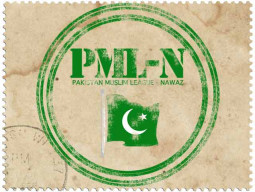
The federal government has prepared draft bills to amend the Christian Marriage Act 1872 and Divorce Act 1869.
Furthermore, the law ministry has submitted a summary to seek the approval of the cabinet on the proposed changes to the law.
According to the summary, the legislations that govern the solemnisation of Christian marriages were introduced during the colonial era and are practically outdated. As a result, the law needs to be revised in accordance with the changing nature of society.
The law ministry also pointed out that Christian Marriage Act 1872 discriminates between a native Christian belonging to the sub-continent and a Christian from another country.
The proposed amendments call for the removal of outdated provisions dealing with the role of Church of England, Church of Scotland and the Roman Catholic Church in solemnising Christian marriages in Pakistan.
Interestingly, the law ministry’s summary to the cabinet also draws attention to the rather limited grounds for dissolution of a Christian marriage under the Divorce Act 1869. According to the current law, a husband can only raise allegations of adultery against his wife to seek a divorce.
The law ministry has claimed that this adds unnecessary complications to family relationships. As a result, they have included nine grounds for divorce in the draft bill that can be invoked by both spouses.
In order to ensure that all social factors are duly accounted for, the law ministry has conducted a series of consultations with all the relevant stakeholders. In addition, it has also obtained a no-objection certificate from the Ministry of Religious Affairs and Interfaith Harmony.
Change of procedure
The draft bills specify the modus operandi to register the marriage and emphasises on the presence of at least two witnesses. According to the proposed amendment, a registrar-general will be appointed from each district to register Christian marriages. If the registrar-general is absent or cannot perform his functions, the government can – by notification in the official Gazette – appoint someone to temporarily act as registrar-general.
If a registrar-general refuses to issue a certificate of marriage, a couple can appeal to a district judge. According to the draft amendments, the judge’s decision will be final and the registrar-general will be expected to comply with the order.
Moreover, the proposed amendments aims to prevent the use of false notices to secure marriage certificates by declaring the practice an offence punishable under sections 191, 192 and 193 of the Pakistan Penal Code.
Published in The Express Tribune, August 31st, 2014.
COMMENTS (2)
Comments are moderated and generally will be posted if they are on-topic and not abusive.
For more information, please see our Comments FAQ












1736508423-0/Express-Tribune---News-Desk-(9)1736508423-0-270x192.webp)










There are only two ways to handle such traditions, either follow the temporal (secular) way or follow the ecclesiastical way.
The Christian churches, like their counterparts in other religions, lay down various rules for major life events such as birth, marriage and death. For instance the Catholic church all over the world frowns on divorce and it is only granted under very restrictive conditions such as the spouse having an unrevealed mental illness before marriage and so on. According to the Catholic church, one is married for life as the match is made in heaven and there really are no grounds for divorce. That doesn't mean that Catholics the world over don't get divorced or that they don't remarry. They subvert it by going through the legal system, the only difference being that they cannot remarry in a church unless the divorce is approved by the Catholic church. With the new law, will the Catholic church in Pakistan be forced to marry divorcees is something I am yet to fully understand.
Dabbling in a little bit of this and that like this bill does is doing a disservice to the Christian community and infringes on the church. The best solution is to purely follow the temporal way and usher a Uniform Civil Code for all Pakistanis.
Why not just create a law a single civil marriage and divorce law for all communities in Pakistan?